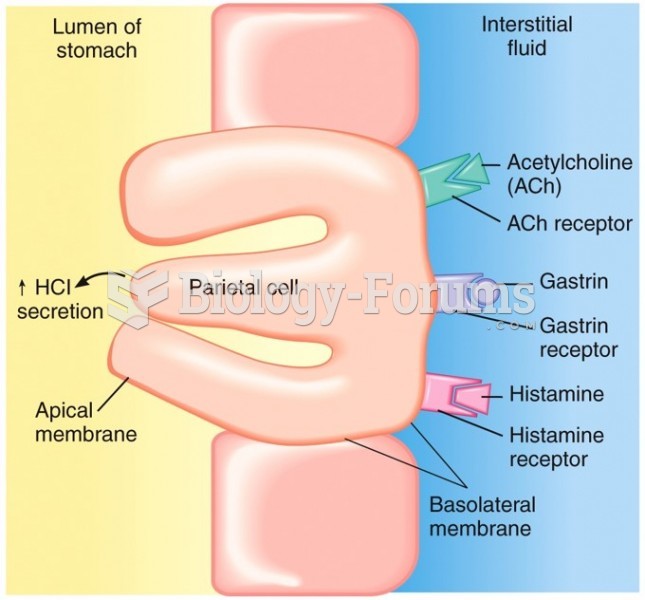This topic contains a solution. Click here to go to the answer
|
|
|
Did you know?
To combat osteoporosis, changes in lifestyle and diet are recommended. At-risk patients should include 1,200 to 1,500 mg of calcium daily either via dietary means or with supplements.
Did you know?
Asthma cases in Americans are about 75% higher today than they were in 1980.
Did you know?
The term pharmacology is derived from the Greek words pharmakon("claim, medicine, poison, or remedy") and logos ("study").
Did you know?
The longest a person has survived after a heart transplant is 24 years.
Did you know?
People about to have surgery must tell their health care providers about all supplements they take.







